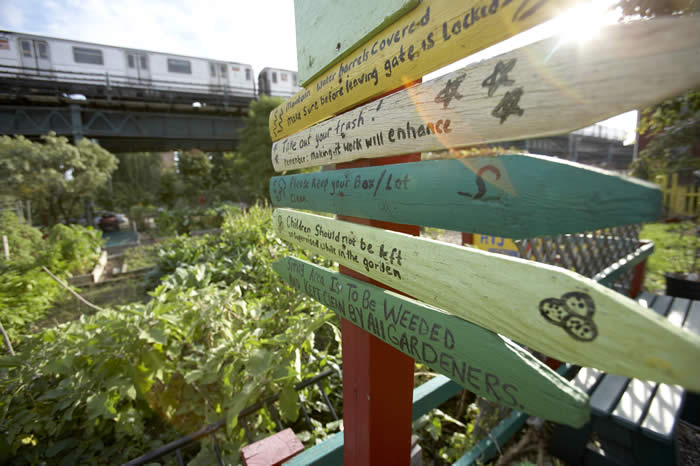Five Borough Farm calls for citywide urban agriculture plan documents opportunities to expand agriculture in NYCStudy Co-Authored by The New School's Nevin Cohen |
New York (July 23, 2012) -- New York City, the nation's largest and most densely populated metropolitan area, is home to more than 700 farms and gardens, producing food and a wide range of additional benefits, from increased access to fresh produce to educational opportunities, green jobs, and environmental improvements, according to a study being released tomorrow by the Design Trust for Public Space. The report, Five Borough Farm: Seeding the Future of Urban Agriculture in New York City, identifies critical needs to support urban agriculture's growth: a plan that formalizes the city's commitment to urban agriculture and identifies land and rooftops for new farms and gardens; better coordination among the city agencies that provide land, water, compost and other critical services and supplies; identification of creative opportunities to build farms and gardens into new spaces; and efforts to reduce racial disparities that hinder the growth of the urban agriculture community. "The farmers and gardeners we interviewed have diverse goals beyond growing and selling healthy food," said Nevin Cohen, Assistant Professor of Urban Environmental Policy at The New School and one of the principal authors of the report. Other outcomes of urban agriculture include educating young people, improving leadership skills, encouraging healthy eating, and cleaning up vacant land. "Growing fresh food is important, but often the vegetables are the means to broader, civic goals," Cohen added. The study identified the lack of accessible growing space as one of the most significant factors limiting the growth of urban agriculture, and highlighted the need for a plan to expand the number of growing spaces around the city. Cohen noted that new gardens and farms could be located on vacant city-owned parcels, on stalled private development sites, in under-used parks and Housing Authority properties, and atop roofs. "New York has as many as 2,700 acres of flat rooftops with the potential to house urban farms," he said. According to Cohen, creatively integrating urban agriculture into the landscape can help city government meet multiple needs at once. "Urban farms reduce the amount of stormwater that would otherwise flood the sewers and pollute our waterways. By incorporating urban agriculture into their operations, agencies can simultaneously achieve their goals, solve citywide problems, and support farmers and gardeners in their efforts to grow healthy food. It can be the proverbial win-win." The study identified racial disparities in the urban agriculture system that contribute to inequitable access to resources, and recommends that the city, together with philanthropic and support organizations, provide capacity-building assistance to urban agriculture organizations, particularly those focused on social justice and led by people of color. "Race and class-based disparities stem not only from intentional biases but also from institutionalized patterns and processes," Cohen said. "Taking steps to address structural inequities, apart from being the right thing to do, is critical to growing the urban agriculture community in a city as diverse as New York." |
About The New School ### |
 |
COMMUNICATIONS AND EXTERNAL AFFAIRS |
| 79 Fifth Avenue, New York, NY 10003 www.newschool.edu |
PRESS RELEASE |
Media Contact: Jessica Potter |
|
|
